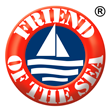The World Sustainability Foundation (WSF) continues its commitment to the preservation of pangolins in collaboration with Save Vietnam’s Wildlife (SVW). Thanks to the Pangolin Conservation Campaign in March and the “Treasures of Vietnam” trip, funds were directly raised for pangolin protection initiatives, a crucial step in supporting the conservation of this endangered species.
On the Front Lines for Pangolin Conservation
SVW is a Vietnamese non-profit organization dedicated to rescuing, rehabilitating, and protecting pangolins and their natural habitat. The SVW recovery centre hosts several endangered species, including pangolins, binturongs, otters, palm civets, and leopard cats. SVW’s founder, Thai Van Nguyen, has received prestigious international awards, such as the National Geographic Wayfinder Award in 2022 and the Goldman Environmental Prize in 2021.
Tireless Work for Wildlife Protection
The generous donations collected have allowed WSF to support the activities of the SVW centre. A decade of commitment and tireless work has enabled the centre to achieve remarkable results in the fight against poaching and the protection of pangolins. From 2014 to 2023, the centre has saved over 2,471 wild animals of 45 species, providing them with high-quality veterinary care with a survival rate of 92%. About 60% of the rescued animals were released back into the wild, contributing to the repopulation of their natural habitats. More than 220,747 km have been travelled to rescue and release sites. Other species protected thanks to the centre’s activities include Owston’s palm civets, otters, binturongs, leopard cats, masked palm civets, tigers, and bears.
A Unique Experience with Pangolins
In March 2024, the tour operator Scuba Cruise organized a trip to Vietnam in collaboration with WSF to support the country’s wildlife conservation initiatives. During the trip, participants visited the SVW Recovery Center, experiencing a unique interactive experience. They had the opportunity to directly care for the pangolins, acting as true “Center Keepers”: they fed the animals and interacted with them, learning about the challenges they face. Thus, they met Sunny and Ant.
Sunny and Ant: A Story of Hope
Sunny is a female pangolin who was caught in a poacher’s trap, losing a leg due to her injuries. Sunny, pregnant at the time of capture, gave birth to a baby, named Ant. Little Ant was released after a complete rewilding process. Sunny, on the other hand, will have to remain a guest at the rescue centre forever.
Thanks to donations from travellers, sufficient funds were raised to provide Sunny with a month’s worth of fresh food and support his welfare, including enclosure maintenance, enrichment activities, veterinary costs, etc. Donors received a symbolic donation certificate from Sunny.
A Charming Armoured Animal
It is impossible to mistake pangolins: their bodies are wrapped in an armour worthy of an ancient warrior. There are 8 species in the world, living in Africa and South and Southeast Asia. Vietnam hosts two species, the Sunda pangolin (Manis javanica) and the Chinese pangolin (Manis pentadactyla), both listed as Critically Endangered on the IUCN Red List. Pangolins feed on ants and termites (consuming up to 70 million insects per year!), playing an important role in insect control. Since they have the habit of digging, they contribute to soil aeration and the creation of habitats for other species. The pangolin’s body is covered with large overlapping scales, partly overlapping, like the scales of a pine cone. When frightened, pangolins roll into a ball and emit a repellent odour as a defence strategy. They are able to walk only on their hind legs, using their long tail for balance. The pangolin is toothless but has a long, protrusible tongue to ensnare prey.
Threatened Animals
Unfortunately, this charming animal is one of the most trafficked mammals in the world and is in grave danger of extinction. Its meat is considered a delicacy in some parts of the world, and its scales are used in traditional medicine, although their therapeutic value has never been proven. It is estimated that over 1,000,000 pangolins have been removed from their natural environment in the last ten years, despite an international trade ban that came into force in 2017 (CITES). Another factor threatening their existence is the loss of natural habitats. Protecting these species has a positive indirect effect on biodiversity, contributing to the maintenance of a healthy and balanced ecosystem.
Donate Now to Help Save Pangolins!
The World Sustainability Foundation continues to support pangolin conservation with Save Vietnam’s Wildlife. It is committed to raising funds to support various activities, including rescue operations, habitat conservation, and awareness campaigns. Your contribution can make a difference. Click the link to donate.
To learn more, read the dossier we created on pangolins, which can be found on the project page: Save the Pangolins | Friend of the Earth.




